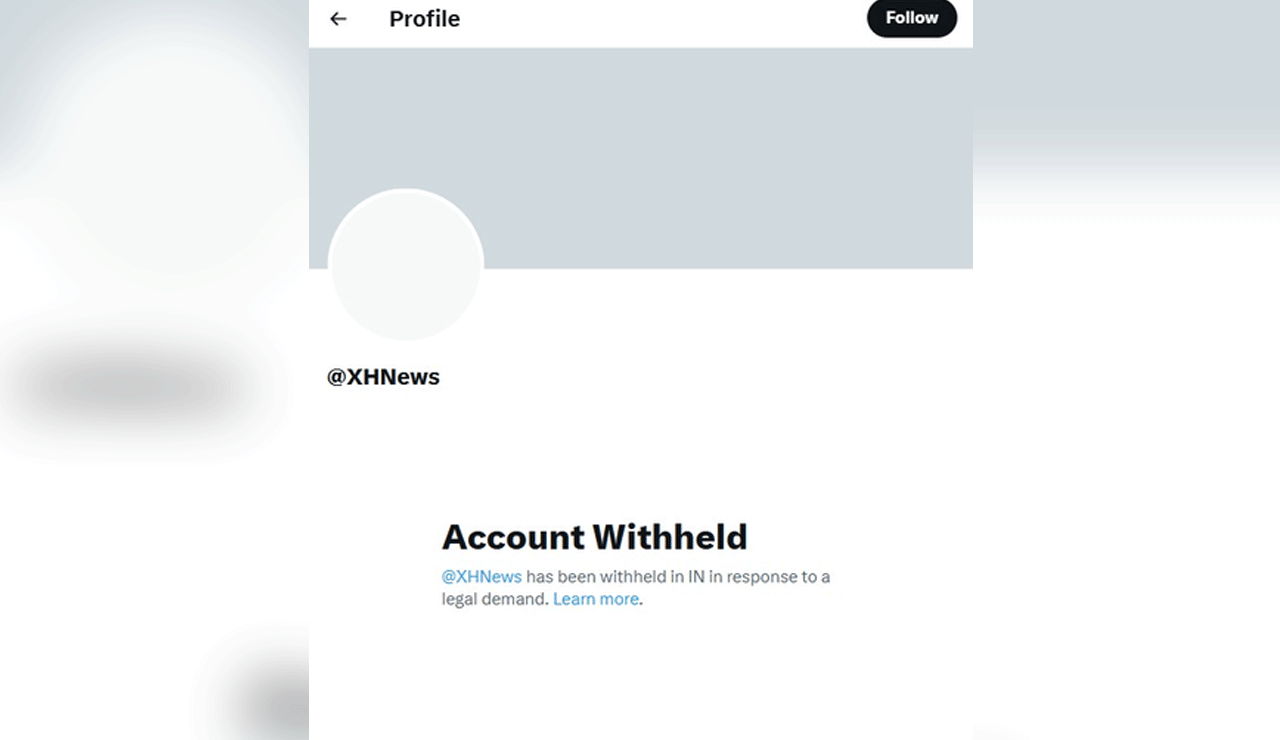India Blocks Chinese Media on X for Spreading Pakistani Propaganda
n a major digital and diplomatic move, the Government of India has blocked X (formerly Twitter) accounts belonging to China’s state-run media outlets — Global Times and Xinhua News Agency — for disseminating fake news and Pakistani propaganda following heightened tensions in South Asia.

New Delhi: In a major digital and diplomatic move, the Government of India has blocked X (formerly Twitter) accounts belonging to China’s state-run media outlets — Global Times and Xinhua News Agency — for disseminating fake news and Pakistani propaganda following heightened tensions in South Asia.
The Ministry of Electronics and Information Technology (MeitY) coordinated the action, citing serious national security and public order concerns.
Table of Contents
Chinese Media Accused of Promoting Fake Rafale Jet Crash Story
According to Indian officials, Global Times and Xinhua actively circulated disinformation during and after Pakistan’s retaliatory action to India’s successful ‘Operation Sindoor’.
One of the most prominent false narratives included a viral claim that an Indian Rafale fighter jet had been shot down near Bahawalpur, Pakistan — a report that India swiftly and officially debunked.
In reality, the image used to support the false claim was traced back to a 2021 MiG-21 crash in Punjab’s Moga district.
Also Read: KTR Slams Congress Govt Over Demolitions in Warangal for Miss World Pageant
Indian Embassy Issues Strong Rebuke to Global Times
The Indian Embassy in Beijing publicly responded to Global Times on X, stating:
“Dear @globaltimesnews, we would recommend you verify your facts and cross-examine your sources before pushing out this kind of disinformation.”
The Embassy emphasized that such unverified reporting represents a serious breach of journalistic ethics, especially during an active military and geopolitical conflict.
PIB Fact Check Confirms Fake News Circulation
India’s Press Information Bureau (PIB) Fact Check division also flagged the viral image and narrative, warning citizens:
“Beware of old images shared by pro-Pakistan handles in the present context. Misinformation undermines public trust and national security.”
The PIB urged media outlets and social media users to verify content before resharing, especially during national crises.
‘Operation Sindoor’ and the Disinformation Backlash
India launched ‘Operation Sindoor’, a precision strike operation targeting terror hubs in Pakistan and Pakistan-occupied Kashmir (PoK) in retaliation for the April 22 Pahalgam terror attack, which claimed 26 civilian lives.
Following India’s military success, a digital propaganda campaign was launched by Pakistan-aligned and Chinese Communist Party (CCP)-linked platforms, aiming to sway international opinion and dilute India’s narrative.
Government Tightens Digital Surveillance Against Foreign Misinformation
This move to block state-sponsored media accounts is part of a broader digital countermeasure strategy adopted by India to combat hostile foreign narratives.
Officials at MeitY reiterated that any media outlet — foreign or domestic — found spreading misinformation, especially during sensitive national security scenarios, will face legal and regulatory consequences.
India’s crackdown on Chinese disinformation efforts highlights the growing intersection of cybersecurity, diplomacy, and information warfare in the digital age. As social media becomes a battleground for global narratives, nations are increasingly asserting control over online influence operations.
